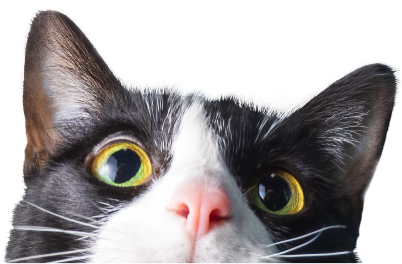Flexible work is at the top of every veterinary professional’s wish list. Employees can better balance their busy work, family, and personal responsibilities with a flexible position that melds in-clinic and remote duties.
Advances in technology, particularly cloud-based solutions, enable veterinary hospitals to take on flexible veterinary working models and offer team members hybrid roles that help improve staffing, productivity, and workplace morale.
Modern, cloud-based software makes flexible work possible across all team member roles. Here, we look at how these solutions can facilitate hybrid and remote work and help beat veterinary burnout and improve veterinary professionals’ quality of life.
What are cloud-based veterinary work solutions?
Cloud-based solutions refer to software or services that teams can access with an internet connection. Unlike older server-based programs where the user must be physically present to access data, software living in the cloud is accessible from any device, anywhere. In a veterinary practice, this means the entire team has real-time access to patient records, scheduling systems, client contact information, and secondary integrations from any computer, tablet, or phone inside or outside the physical practice.
Most cloud-based systems have built-in communications features, which can help remote workers communicate with in-clinic team members or send email or text messages directly to clients without using their personal phones. Payment systems also can operate remotely using one-click cloud-based processors or allowing clients to pay online independently.
What clinic roles can work remotely, and what can they do?
Practice managers: Operations from anywhere
Practice managers (PMs) oversee day-to-day operations, including finances, human resources, schedule coordination, and a vast array of other administrative tasks, which lend themselves nicely to remote work, because many are non-clinical.
With cloud-based software, PMs can accomplish duties from a quiet secondary location without constant interruptions and distractions from the clinic. Cloud solutions are also ideal for PMs who manage multiple clinic locations, because they don’t need to physically travel between hospitals.
Tasks PMs could handle from home include:
- Schedule management
- Financial reporting
- Payroll
- Recruiting
- Client communications
- Human resource tasks
- Marketing
Veterinarians: Expanding reach and flexibility
A veterinarian’s job, including hands-on exams and surgeries, mostly requires their physical presence in the clinic. However, with cloud-based tools, veterinarians can provide telehealth services remotely or complete charting, communications, or consulting from home or on the road.
Tasks veterinarians can accomplish with cloud-based software access include:
- Telemedicine and virtual care consultations
- Patient record accessing, updating, and reviewing
- Client education
- Patient follow-ups
- Lab result interpretation
- Prescription authorizations
Veterinary technicians: Support from a distance
Veterinary technicians primarily provide hands-on care, assisting with procedures, exams, and diagnostics during in-clinic visits. But with cloud-based tools, veterinary technicians can contribute remotely by assisting with administrative and medical support tasks.
Tasks veterinary technicians may perform remotely include:
- Telemedicine support (e.g. history, documentation, messaging)
- Follow-up communications
- Medical records
- Client education
- Team training
- Hospital protocols and certifications
- Marketing content creation
Client service representatives: Running the clinic remotely
Client service representatives (CSRs) run the “front office” in a veterinary hospital, acting as the hospital’s first line of communication with clients, managing scheduling and billing, and handling opening and closing procedures. Some practices have already transitioned CSRs to remote or hybrid positions, since many of their tasks can be managed remotely through cloud-based software.
Tasks CSRs can perform remotely include:
- Scheduling and appointment reminders
- Payment processing
- Billing statements
- Client communication (e.g., phone, chat, email, text)
- Checking patients in and out
- Medical record updates
The impact of flexible working models
Flexible veterinary working models benefit employees and veterinary practices. Employees gain control over their working lives, can be more productive working from home, and enjoy less overall stress. Practices that allow remote or hybrid work may have fewer administrative team members on the floor at any given time, so the extra space that CSRs once occupied can be transformed into additional exam room space, ultimately improving hospital revenue.
Key takeaways
- Flexible veterinary working models can help veterinary hospitals attract and retain top talent by allowing them to maintain a healthy work-life balance.
- Cloud-based software solutions like Provet Cloud are necessary for practices looking to adopt flexible veterinary working models. Easy, remote access to patient records and client information ensures team members can work from anywhere.
- Hybrid work models that move CSRs and managers to remote locations allow hospitals to repurpose their space. Additional exam rooms can help bring in more hospital revenue.
Ready to make the leap to cloud-based software?
Flexibility is crucial for working professionals to carve out a reasonable work-life balance. Cloud-based solutions provide the necessary tools for veterinary employees to work remotely or with a hybrid model, which reduces stress and will attract top talent to your hospital.
Schedule a Provet Cloud demo to learn more about our features and integrations, and how they can positively impact your practice team and culture.



